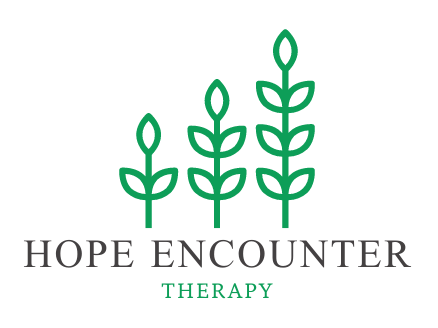Individual Therapy Services

Trauma-focused individual therapy is a therapeutic approach designed to help individuals process and heal from the effects of traumatic experiences. Whether the trauma is the result of a single event, such as an accident, assault, or natural disaster, or complex trauma resulting from prolonged exposure to adverse situations (e.g., abuse, neglect, abandonment), individual therapy provides a safe and structured space for survivors to explore their emotions, thoughts, and behaviors in relation to their trauma.
Trauma impacts people at multiple levels, including their emotional, physical, cognitive, and relational well-being. Individuals suffering from trauma often experience symptoms such as anxiety, depression, flashbacks, nightmares, intrusive thoughts, and emotional numbness. These symptoms are typically responses to overwhelming experiences that the individual has not yet fully processed. Trauma can also alter one’s worldview, sense of safety, and ability to trust others. Therefore, the goal of individual therapy for trauma is to help the person regain a sense of control, self-efficacy, and healing.
Key Components of Trauma-Focused Therapy at Hope Encounter Therapy
Establishing Safety and Trust
The therapeutic relationship is central to trauma-focused therapy. Since trauma often involves a breach of trust, establishing safety and trust between you and your therapist is crucial. This phase may involve building rapport, understanding your history, and creating a non-judgmental, compassionate environment. We know when you feel safe, you are more able to open up and process painful memories without re-traumatization.
Psycho-Education
Many individuals who experience trauma are unaware of the psychological and physical responses they are experiencing, such as dissociation or hypervigilance. A key component of therapy is psychoeducation—helping you understand that your symptoms are natural responses to abnormal events. This normalizes your experience and reduces self-blame, which can often accompany trauma.
EMDR (Eye Movement Desensitization and Reprocessing)
EMDR is a specialized therapeutic approach that integrates bilateral stimulation (usually eye movements) with cognitive processing to help individuals process distressing memories. During EMDR, the client is encouraged to recall the traumatic memory while following the therapist activates bilateral stimulation. This technique has been shown to reduce the emotional charge of traumatic memories, facilitating emotional processing and healing.
Cognitive Processing Therapy (CPT)
CPT is a form of cognitive-behavioral therapy designed to help individuals process and overcome trauma-related distress, particularly in cases of post-traumatic stress disorder (PTSD). CPT focuses on identifying and challenging unhelpful thoughts and beliefs that arise from traumatic experiences, such as feelings of guilt, shame, or self-blame. Through structured sessions, clients learn to reframe distorted thinking patterns and develop healthier ways of understanding their trauma. By addressing the cognitive distortions that perpetuate emotional distress, CPT empowers individuals to regain control over their thoughts and reactions, fostering healing and reducing PTSD symptoms.
Narrative Therapy
Narrative therapy is a therapeutic approach that helps individuals reframe and reconstruct the stories they tell about their lives, particularly in the context of trauma. It encourages you to view their experiences not as defining aspects of your identity, but as events that can be understood and transformed. By externalizing the trauma, you can separate yourself from the pain and regain a sense of agency and control. Through this process, you rewrite your narratives in empowering ways, focusing on resilience, strength, and hope. This therapy fosters healing by helping you regain meaning and coherence in your life story.
Somatic Approaches
Trauma often has a strong physiological component, as the body stores stress and unresolved emotions. Somatic therapies, such as Somatic Experiencing or Trauma Sensitive Yoga, aim to help individuals reconnect with their bodies and release trauma-related tension or dysregulation. These techniques can be especially helpful for individuals who feel disconnected from their bodily sensations or experience chronic physical symptoms related to trauma.
Integration and Meaning-Making
The final phase of trauma therapy often involves helping clients integrate their trauma into their broader life story. Rather than seeing themselves solely as “victims,” individuals work to understand how their trauma has shaped them and how they can continue to live fulfilling lives. This process may involve developing new goals, enhancing resilience, and fostering a sense of empowerment.
Individual therapy for trauma is a vital and multifaceted process aimed at healing individuals who have experienced overwhelming, life-altering events. At Hope Encounter Therapy we offer a blend of cognitive, emotional, and somatic techniques. Our trauma therapists can guide you through the process of reclaiming your life, re-establishing trust, and finding a sense of peace. Therapy not only alleviates symptoms but also empowers you to redefine your sense of self and engage meaningfully with the world around you.

